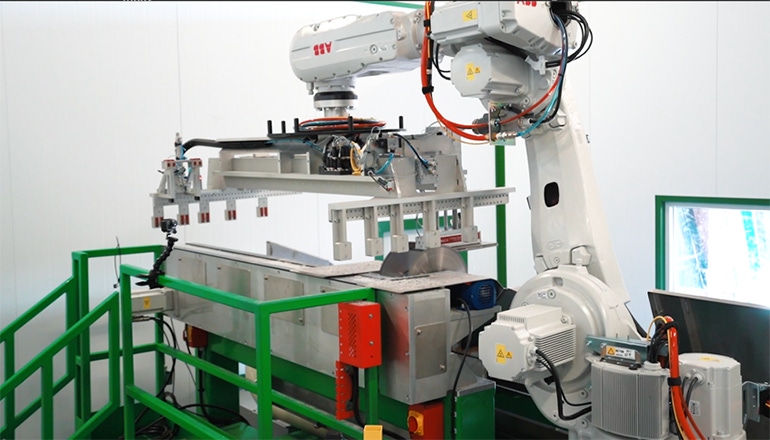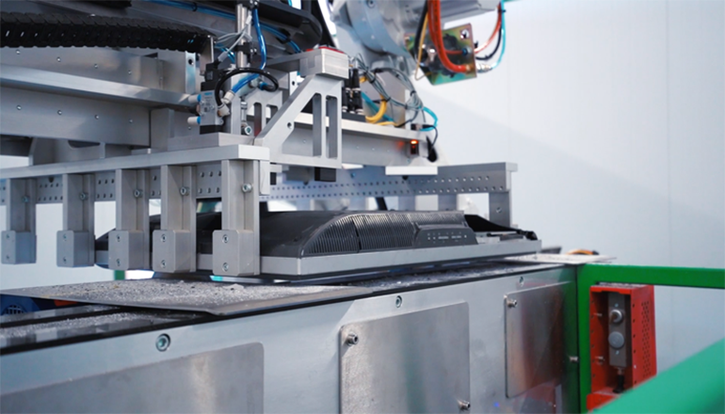Flat Panel Recycler Creates System to Eliminate Mercury Exposure
FPD Recycling has created a fully enclosed system that prevents recyclers from being exposed to hazardous materials like mercury.

An urban mining technology provider has created a screen recycling machine to reduce the risks associated with traditional methods of recycling flat panel displays from laptops and TV screens, specifically focusing on eradicating how recyclers are exposed to mercury through the recycling process.
According to the World Health Organization, mercury is considered one of the top 10 chemicals or groups of chemicals of major public health concern, affecting the brain, nervous system, kidneys and lungs and, in older adults, increasing the risk of cardiovascular disease.
Paudy O’Brien, CEO and founder of Lakewood, Colo.-based FPD (flat panel display) Recycling, has created FPD PRO, a fully enclosed system that prevents recyclers from being exposed to hazardous materials like mercury.
“The FPD PRO is the only fully automated monitor, laptop and TV machine on the market. Comparing the FPD PRO to the semi-automated processing available, we have the lowest operation cost and the highest throughput, thus maximizing profit for the recycler,” says O’Brien.
The operation prevents the need for workers to handle any of the hazardous components. The system also enables continuous monitoring of mercury and dust. Removing hazardous components, such as liquid crystal panels, mercury and cold cathode fluorescent lamp (CCFL) tubes, allows for the recovery of indium tin oxide and further recovery of indium, which is a critical raw material, according to O’Brien.
Liquid crystal is another concern and is in every FPD screen. The material safety data sheet shows that it is a health hazard that causes skin irritation and may cause damage to organs through prolonged or repeated exposure. According to O’Brien, research has shown the harmfulness of the liquid crystal, indium and other heavy metals that LCD panels contain, leading an increasing number of countries, such as China, to classify LCD panels as hazardous waste.

“The current manual disassembly of FPDs has three major disadvantages. The process is expensive, slow and exposes workers to hazardous components, such as mercury,” says O’Brien. “Currently, manual disassembly will recycle between four to six FPDs in one hour, with workers being exposed to toxic materials.”
FPD Recycling will lease the technology and partner with recyclers. With the lease, the company provides fixed operation costs for maintenance, consumables and servicing, in addition to support for recyclers in sourcing end markets for the fractions. FPD also is working with original equipment manufacturers on awareness of the FPD PRO.
“We have engineered a world-class technology in the FPD PRO,” says O’Brien. “However, without looking at it from a recycler’s perspective and putting some financial engineering, it would be a missed opportunity.”
The FPD PRO can process in excess of 60 TVs and more than 100 laptops per hour, according to O’Brien.
FPD Recycling was founded in 2018 by O’Brien. After evaluating the e-waste industry, he identified a number of major issues and these challenges presented the opportunities to help shape the future of recycling. One of these is removing hazardous materials such as CCFLs, heavy metals, mercury, lead and liquid crystal panels from FPDs.
“It was a great feeling when we launched the FPD PRO. Our partners and team have been amazing to work with on this exciting technology,” says O’Brien.
FPD Recycling has partnered with ABB Robotics, supplier Donaldson Filtration and Allen Bradley on developing the FPD PRO.
About the Author
You May Also Like


.png?width=300&auto=webp&quality=80&disable=upscale)